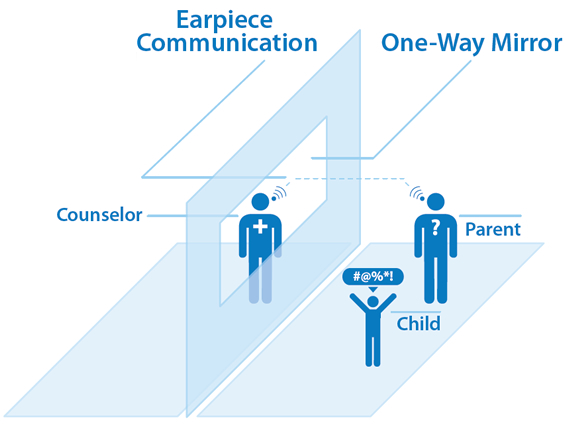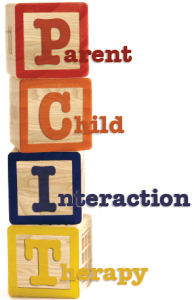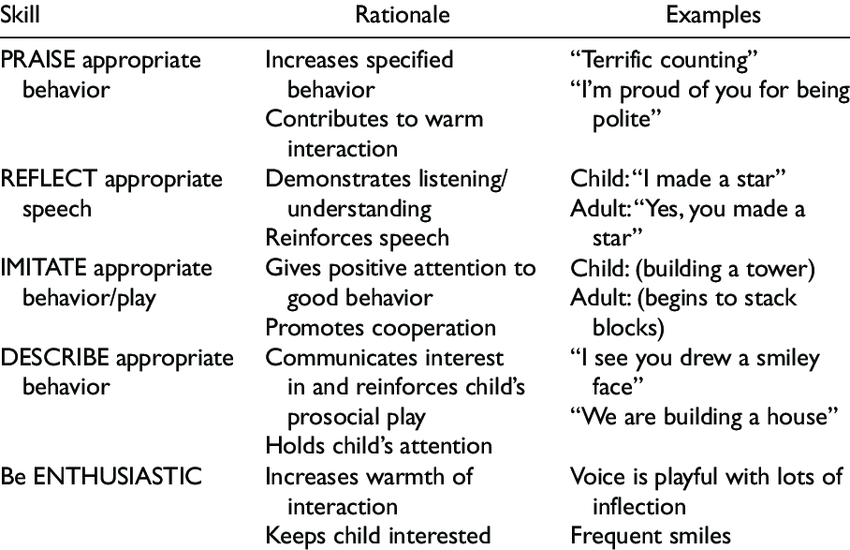Parent-child interaction therapy, or PCIT, is a treatment for parents and children who are struggling with their relationship. It can be used to help address issues such as aggression, defiance, poor communication, and social withdrawal. This type of therapy is very beneficial for both parents and children and can improve relationships in a short amount of time. If you are considering seeking PCIT treatment for yourself or your child, this article will provide you with all the information you need to know about what it is, how it works, and what to expect.
Contents
Understanding PCIT
PCIT is a treatment that helps parents and children who are struggling with their relationships. It can be used to address issues such as aggression, defiance, poor communication, and social withdrawal.
How Does PCIT Work?
The goal of PCIT is to improve the parent-child relationship by teaching parenting skills and improving communication between the two. The therapist will work with the parents and child in a one-on-one setting and will provide feedback and guidance to help them improve their interactions.
What Are Parenting Skills?
Parenting skills are the techniques that parents use to interact with their children. PCIT teaches specific skills such as positive reinforcement, setting limits, and effective communication. These skills can help improve relationships by teaching both parents and children how to better communicate and behave around each other.
What To Expect In PCIT Sessions?
The sessions usually last around 50 minutes, and during that time the therapist will work with the parent and child to address any issues they are having. The therapist will also provide feedback and guidance on how to improve the parent-child relationship.
What Steps Are In PCIT?
The steps in PCIT are:
Assessment: The therapist will meet with the parents and child to assess their relationship and determine what areas need improvement.
Skill Training: The therapist will work with the parents and children to teach them the skills they need to improve their relationship.
Application of Skills: Parents and children will practice using the skills they have learned in the therapy sessions.
Feedback and Evaluation: The therapist will provide feedback to the parents and children on their progress and continue to work with them until the relationship improves.
What Kind Of Skill Training Parent Children Undergo?
Positive reinforcement is one of the most important skills that parents and children learn in PCIT. It involves rewarding your child for positive behavior with praise or a special treat. This can help encourage them to continue behaving in a way that you approve of.
Another skill that is taught in PCIT is setting limits. This involves establishing rules and limits for your child. And making sure they understand what is expected of them. When children know what the rules are and what the consequences are for breaking them, it can help reduce behavioral problems.
Communication is another important skill that is taught in PCIT. This involves learning how to listen to your child and understand their feelings. As well as giving them clear instructions that they can understand. When parents and children can communicate effectively, it can help resolve conflicts and improve the relationship.
What PCIT Setup Is Like?

PCIT is typically done in a one-on-one setting with the therapist and parent, although some programs also offer group sessions. The child will usually be seen separately from the parents so that they can focus on their interactions.
The Benefits of PCIT
 PCIT is very beneficial for both parents and children. Some of the benefits include:
PCIT is very beneficial for both parents and children. Some of the benefits include:
Improved communication between parents and children: One of the main goals of PCIT is to improve communication, and research has shown that it can be very successful in doing so.
Improved relationships: PCIT has been found to help improve relationships between parents and children.
Reduced aggression: Children who receive PCIT often show a reduction in aggressive behaviors.
Increased cooperation: In addition to reducing aggression, PCIT has also been shown to increase cooperation between parents and children.
Reduced anxiety: Children who receive PCIT often show a reduction in anxiety symptoms.
Better behavior in children: In addition to the above benefits, PCIT has also been shown to lead to better behavior in children.
PCIT Vs. Play Therapy

PCIT is a type of therapy that uses the interaction between the parent and child to help improve their relationship. Play therapy, on the other hand, is a type of therapy that uses play to help children express their feelings and work through emotional issues.
Both PCIT and play therapy can be beneficial for children, but they are different in how they approach treatment. PCIT focuses on the parent-child relationship and teaches specific skills that can help improve communication and behavior. Play therapy is more focused on helping children express their feelings and work through emotional issues.
NOTE: If you are unsure which type of therapy would be best for your child, talking to a therapist can help you decide.
What Skills Do You Learn In PCIT?

The skills that you learn in PCIT will vary depending on your specific situation and needs. However, some of the common skills that are taught include:
How to listen and positively respond to your child: One of the most important skills that parents learn in PCIT is how to respond to their child positively. This involves listening to your child understanding their feelings and then responding in a way that is supportive and helpful.
How to set limits: Another key skill that parents learn in PCIT is how to set limits for their children. This involves setting boundaries and expectations for your child’s behavior clearly and consistently.
How to deal with difficult behaviors: Parents also learn how to deal with difficult behaviors constructively. This includes learning how to stay calm and respond in a helpful way when your child is acting out.
How to effectively communicate with your child: In addition to setting limits and dealing with difficult behaviors, parents also learn how to effectively communicate with their children. This includes using clear and concise language, listening to your child, and avoiding yelling or arguing.
How to effectively discipline your child: Disciplining your child can be difficult, but PCIT teaches parents how to do it in a way that is effective and positive. This includes using reinforcement instead of punishment and being consistent with your discipline methods.
NOTE: PCIT is very successful in improving relationships between parents and children. The skills that are taught in PCIT help to improve communication, cooperation, and understanding between the two. In addition, the therapist will provide feedback and guidance on how to effectively deal with any difficult behaviors.
Limitations Of Parent-child Interaction Therapy
While PCIT is a well-researched and proven treatment, it is not perfect. There are some limitations to this type of therapy.
- First, PCIT is expensive and may not be covered by insurance. In addition, the therapist needs to be certified to provide this treatment.
- Second, the therapy sessions require a lot of time and commitment from both the parent and child. The sessions typically last for an hour, and it is important to attend all of the sessions to see results.
- Third, PCIT may not be appropriate for all families. The therapist will need to assess before recommending this treatment.
Finding a PCIT Professional
If you are looking for a PCIT professional in your area, there are several ways to find one. You can check with your local mental health association, or you can search online for a PCIT therapist in your area.
What To Look Out For In a PCIT Therapist?
When looking for a PCIT therapist, it is important to make sure that they are certified and have experience in providing this type of treatment. You should also ask the therapist about their approach to therapy, and make sure that you feel comfortable with them.
Talking To a Professional
If you have any questions or concerns about PCIT, it is important to talk to the therapist who is providing the treatment. They will be able to answer any questions you have and can guide how to get the most out of PCIT.
How To Get The Most Out Of PCIT?
To get the most out of PCIT, it is important to be actively involved in the treatment and to follow the therapist’s guidance. You should also make sure to practice the skills that you learn in therapy at home.
One way to practice the skills you learn in PCIT is to use them in your everyday life. For example, if you learn how to set limits and boundaries with your child, you can start using these rules at home. You can also try practicing the skills with a friend or family member.
Experts View On PCIT
PCIT is a well-researched treatment, and there is a lot of evidence to support its effectiveness. In addition, PCIT has been endorsed by several professional organizations such as the American Psychological Association and the National Institutes of Health.
Famous Experts On PCIT
There are several famous experts on PCIT who have spoken out about the benefits of this treatment. These experts include Dr. Ross Greene, Dr. Alan Kazdin, and Dr. Betty Karrer.
Case Study
In this case study, we will take a look at a mother and daughter who are receiving PCIT.
Mother: 43 years old, works full time, has a college degree
Daughter: 11 years old, in middle school
The mother and daughter had been struggling for some time with communication and behavior issues. The daughter was often aggressive and defiant towards her mother, and the two were having a lot of difficulties getting along.
The mother was referred to Parent-child interaction (PCIT) by her pediatrician. After completing an assessment, the therapist determined that Parent-child interaction therapy (PCIT) would be a good fit for the mother and daughter.
The mother and daughter began attending weekly sessions, and they quickly saw improvements in their relationship. The daughter became more cooperative and less aggressive. And the mother felt like she had a better understanding of how to deal with her daughter’s behavior.
The mother and daughter have been attending parent-child interaction therapy (PCIT) for about six months now. And they continue to see improvements in their relationship. The therapist has been providing feedback and guidance on how to maintain these improvements over time.
Conclusion
Parent-child interaction therapy (PCIT) is a well-researched and proven treatment for improving relationships between parents and children. If you are struggling with communication or behavior issues with your child, PCIT may be a good option for you. Talk to your pediatrician or mental health professional to find out more.
A Word From Therapy Mantra
Your mental health — Your psychological, emotional, and social well-being — has an impact on every aspect of your life. Positive mental health essentially allows you to effectively deal with life’s everyday challenges.
At TherapyMantra, we have a team of therapists who provide affordable online therapy to assist you with issues such as depression, anxiety, stress, workplace Issues, addiction, relationship, OCD, LGBTQ, and PTSD. You can book a free therapy or download our free Android or iOS app.


